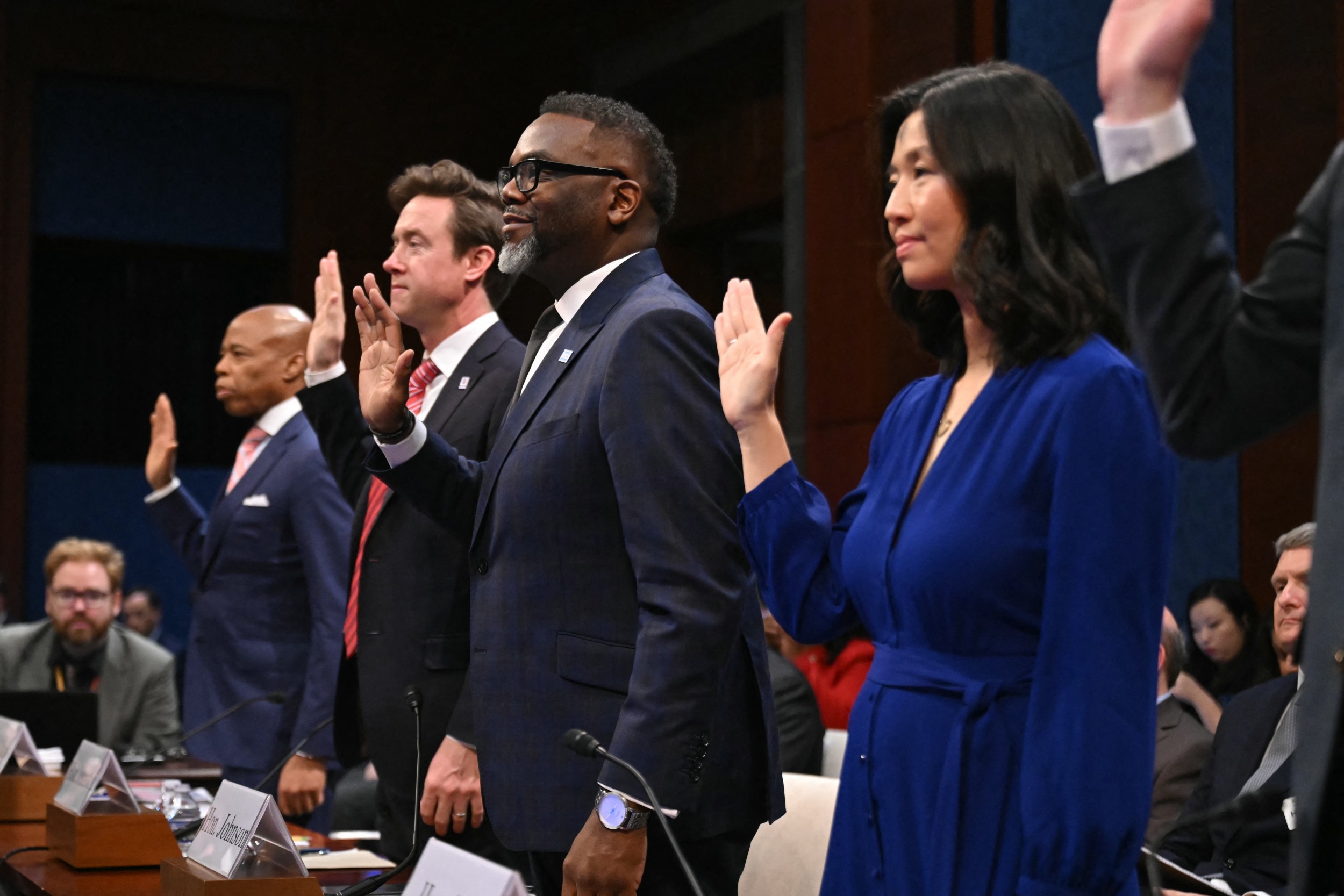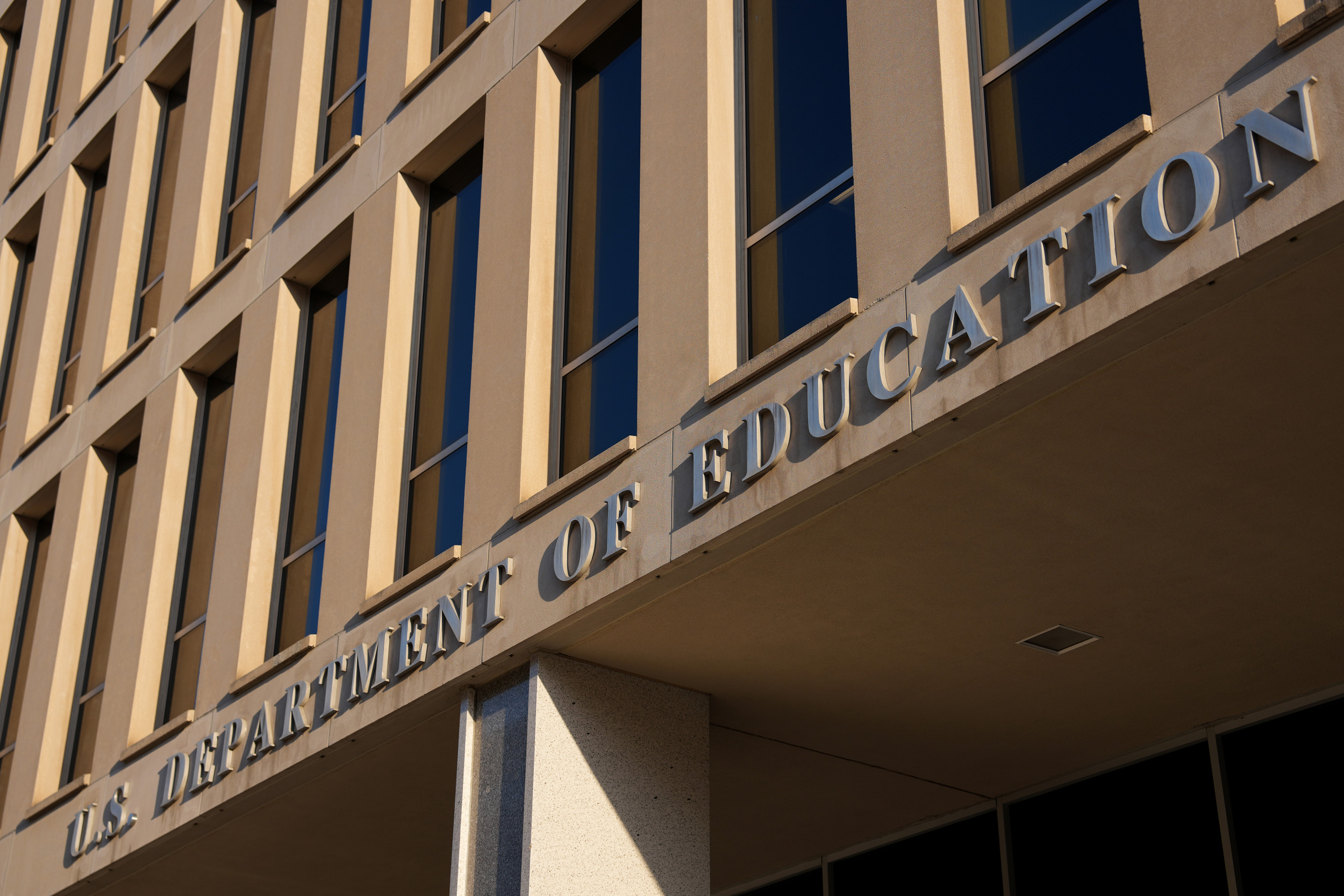🎙️ Voice is AI-generated. Inconsistencies may occur.
Republican states will bear the brunt of some of President Donald Trump's biggest budget cuts after Democratic states launched successful legal challenges.
Newsweek sought email comment on Thursday from the Department of Defense; the office of Attorney General, Pam Bondi, and Senator Marsha Blackburn.
Why it Matters
Democrats' legal victories will put pressure on Republican politicians to condemn Trump's cuts or risk losing support in their own home states.

What To Know
On April 1, a judge in Maryland ordered federal agencies to reinstate thousands of federal workers.
His order only applies in areas administered by the plaintiffs: 19 states and the District of Columbia, which all have Democratic Attorneys General.
U.S. Judge James Bredar issued the preliminary injunction ordering 20 federal departments and agencies to rehire the thousands of probationary employees, but only in Arizona, California, Colorado, Connecticut, Delaware, District of Columbia, Hawaii, Illinois, Maryland, Massachusetts, Michigan, Minnesota, Nevada, New Jersey, New Mexico, New York, Oregon, Rhode Island, Vermont and Wisconsin.
Bredar had originally imposed a temporary restraining order on the firing of 24,418 probationary workers across the U.S. but when he imposed a longer lasting preliminary injunction, he narrowed it only to the plaintiff states.
His order applies to the departments of Agriculture, Commerce, Defense, Education, Energy, Health and Human Services, Homeland Security, Housing and Urban Development, Interior, Labor, Transportation, Treasury and Veterans Affairs and several federal agencies including the Consumer Financial Protection Bureau; Environmental Protection Agency; Federal Deposit Insurance Corporation; General Services Administration; Office of Personnel Management; Small Business Administration and the U.S. Agency for International Development.
That is just the latest victory for Democratic states.
On February 10, Massachusetts federal judge, Angel Kelley, placed a temporary restraining order on cuts the Trump administration had made to funding for public health research at the National Institutes of Health [NIH].
Her order only applies to the 22 Democratic-led states that brought the lawsuit.
What People Are Saying
Writing in her Civil Discourse legal blog on February 11, former federal prosecutor Joyce Vance wrote that the plaintiffs in the NIH case are playing a smart game by ensuring the cuts will now only apply to Republican states. That may force Republican states to speak up against Trump's cuts.
"It's important to know just who the plaintiff states are because there's a smart litigation strategy at work here—no freeloading. The only relief sought is for the states that have sued: Massachusetts, Michigan, Illinois, Arizona, California, Connecticut, Colorado, Delaware, Hawaii, Maine, Maryland, Minnesota, Nevada, New Jersey, New Mexico, New York, North Carolina, Oregon, Rhode Island, Vermont, Washington, and Wisconsin. Other states would still be subject to the Trump administration's new policy," Vance wrote.
This includes "states like Alabama, where the University of Alabama at Birmingham has received more than a billion dollars in NIH funding in recent years. Vanderbilt University in Tennessee, which receives more than $400 million in funds, is out of luck unless Senator Marsha Blackburn can talk Trump off the ledge on this one," Vance added.
Former federal prosecutor, Neama Rahmani, told Newsweek: "It may hurt politically if red state federal workers are terminated while blue state workers can keep their jobs."
"Judges generally only grant restraining orders or injunctions to the parties seeking relief. Since the Republican state attorney generals chose not to join the lawsuits, their state's employees will be left out of any benefit therefrom. The same analysis applies to recipients of federal grants."
Rahmani, now president of the West Coast Trial Lawyers law firm in California, said that the cases feed into a wider debate about whether injunctions should be applied nationally: "There is an ongoing debate over nationwide injunctions, and one of the arguments in favor of such injunctions is the importance of uniform federal law and policy. It makes little sense for federal workers or grant recipients to be treated differently in different states simply because of a decision of one elected official or appointed judge."
What Happens Next
Bredar ordered that the 20 government agencies must reinstate all affected workers by April 8, but only in the Democratic states that took the case.
He also ordered a status report on whether the workers have been reinstated by that date.
fairness meter
About the writer
Sean O'Driscoll is a Newsweek Senior Crime and Courts Reporter based in Ireland. His focus is reporting on U.S. law. ... Read more



